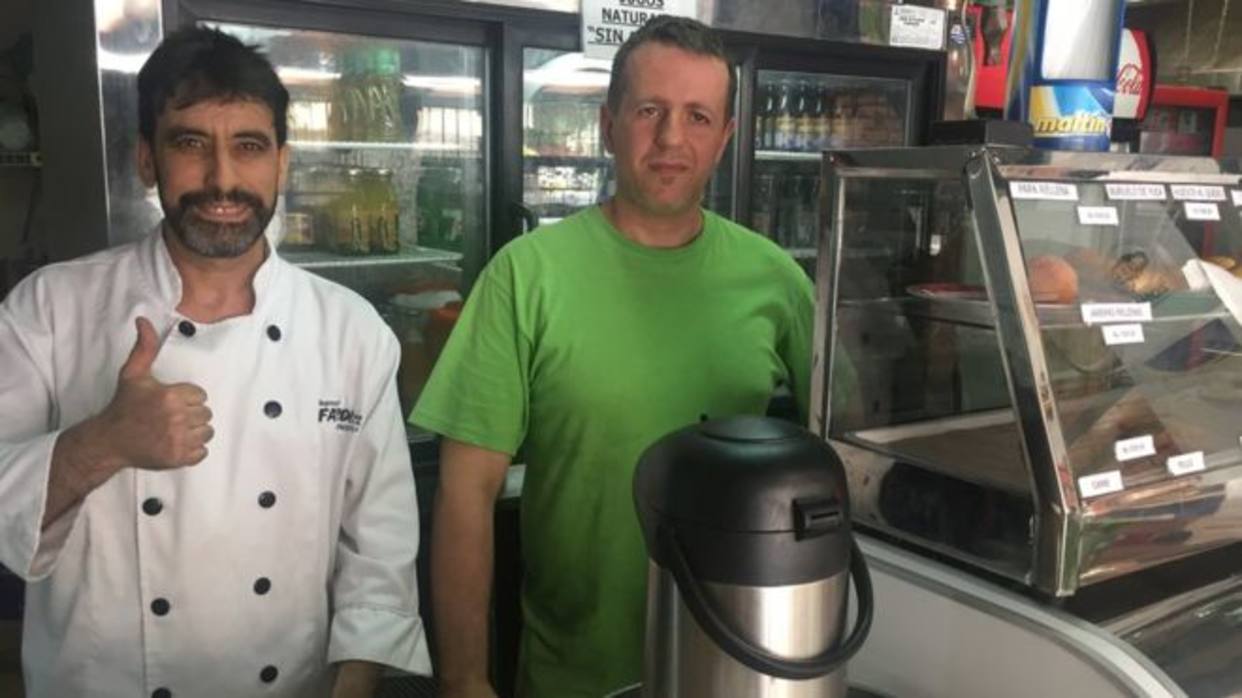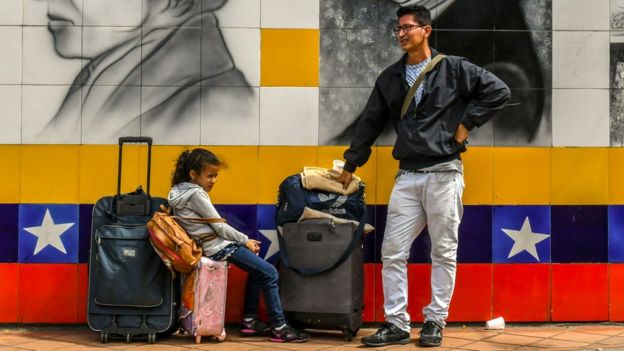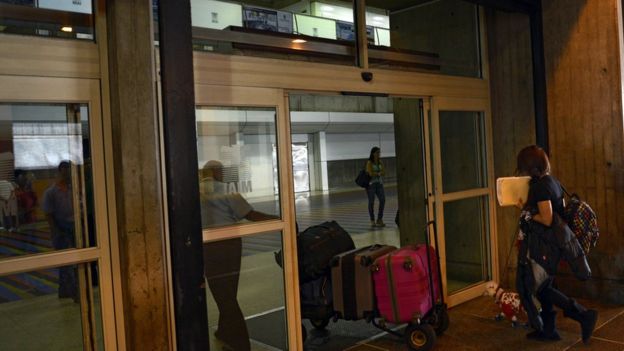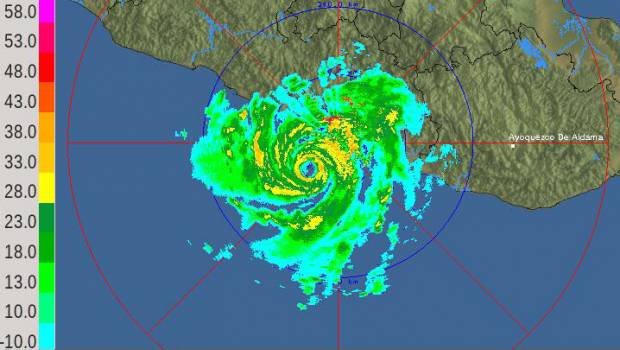One of the most notable consequences of the crisis in Venezuela is emigration, which is a cultural change for a country that for decades welcomed immigrants who sought the prosperity of a petro-state.
First were the best prepared those who came out, young professionals who saw no future in the country. But now, the shortage of commodities and inflation have also pushed to lower classes.
Although there are no exact official figures, it is estimated that the Venezuelan diaspora is between one and two million people. Venezuela has about 30 million inhabitants. And according to the United Nations, 80,000 Venezuelans have sought asylum in other countries since 2014.
Whether it's the Maiquetía International Airport in Caracas or the land borders with Colombia and Brazil, Venezuelans leave their country. Many others are thinking and some more would, but do not have the resources.
Many, however, decide to stay. Among them, foreigners who, despite the problems and who could return without legal problems to their places of origin, remain in the country that hosted them.
The reasons are several. For some, in the end, Venezuela became their home. Others are betting on the recovery of the country and to be already positioned when that happens. And others, with revenues in dollars, weigh advantages and disadvantages and conclude that Venezuela, despite its problems, remains for them a "paradise".
These are three stories of foreigners who thought to leave Venezuela, but who decided to remain.
"I'm still betting on Venezuela"
Ariel Reyes is Uruguayan and after a passage through Paraguay he arrived in a prosperous Venezuela 20 years ago. He has earned his living as best he could. Since 2012 he runs a small restaurant, "El Farolito" with his partner, compatriot and friend Fabián, where they eat empanadas and have lunch.
Little by little the business has been growing, without leaving the modesty. For a few days it has a barbecue to offer Uruguayan cuts of meat.
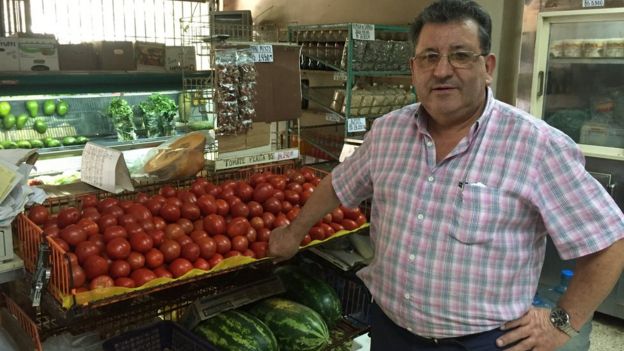
At the Maiquetía International Airport in Caracas, hundreds of Venezuelans take flights in search of a new life.
"When you go out (from your country) you always dream of going back, but you take root and it gets complicated," says Reyes, 54, whose wife and daughter are Venezuelans.
"But if this continues ...", he says without closing the sentence. The business is affected by the lack and the difficulties to find the products and by the inflation.
Figures of the Venezuelan diaspora
80,000
Venezuelans have applied for asylum in other countries since 2014
42,000 people applied for it in the United States, the country with the largest number of asylum requests in Venezuela
300,000 Venezuelans live in Colombia
42% of new arrivals to Colombia from Venezuela are returning Colombians
40,000 Venezuelans are estimated to live in Trinidad and Tobago, a small island in northern Venezuela.
UNHCR (United Nations High Commissioner for Refugees). Data for August 2017.
He would also like to offer a roast at night, but it is impossible for safety reasons. It focuses for that in breakfasts and lunches. At 4:00 p.m. closes.
Before he was able to leave a full month a year of vacation to Uruguay. For 5 years now it can not do it. No more savings.
Although the business is affected by the crisis and political conflict, demonstrations and the closing of streets at its door, ensures that it can continue to live.
